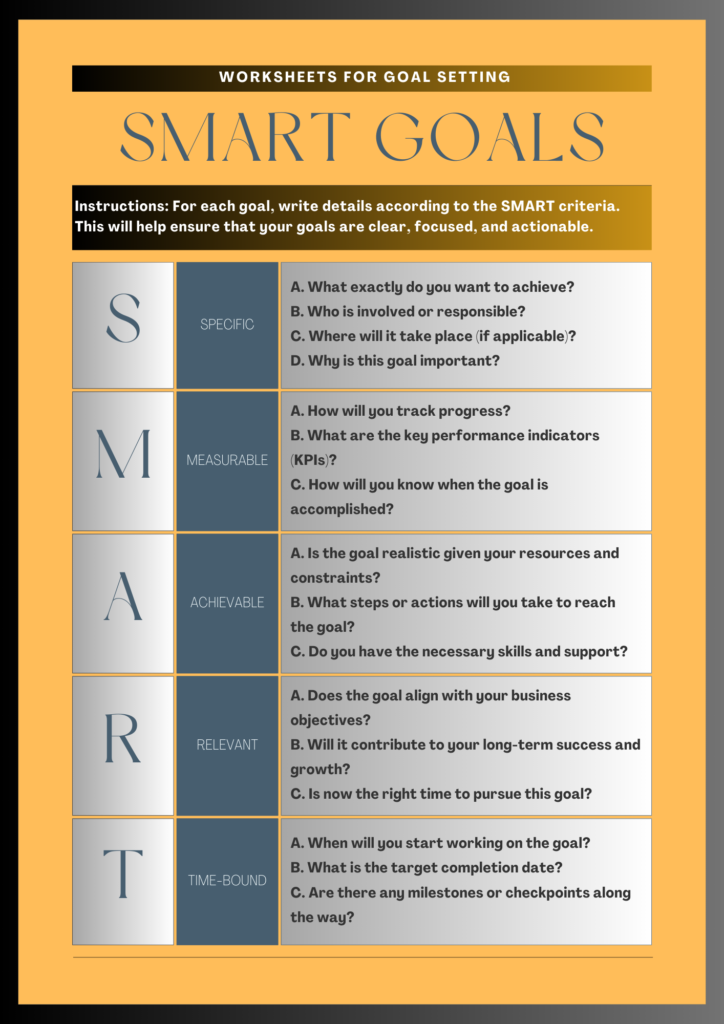Goal Setting
In the complex tapestry of life, the art of “Goal setting” serves as the vibrant thread weaving purpose, direction, and fulfillment. Whether one envisions personal growth, career milestones, or health transformations, the journey of goal setting is a profound exploration of potential and purpose. This blog “Goal Setting – 10 Steps of Goal Setting” delves into the nuances of effective goal setting, offering insights and strategies to empower individuals to transform aspirations into tangible accomplishment.
The Power of Goal Setting
Goal setting is not a mere exercise in wishful thinking; it’s a deliberate and structured process that empowers individuals to shape their future. People who adhere to the principles of setting Specific, Measurable, Achievable, Relevant, and Time-Bound (SMART) goals are statistically more likely to succeed. Beyond providing a roadmap, goal setting brings clarity, focus, and a metric to measure your progress.
The SMART Goal Framework
Specific
- Begin by clearly defining your goal. The more specific, the better.
Example: “I want to lose 10 pounds in the next three months.”
Measurable
- Establish criteria to track your progress, making your journey tangible.
Example: “I will track my weight weekly to monitor my progress.”
Achievable
- Ensure your goal is realistic and attainable, boosting motivation.
Example: “I will aim to lose 1-2 pounds per week, a healthy and achievable target.”
Relevant
- Align your goal with your values and long-term objectives.
Example: “Losing weight aligns with my overall health and well-being goals.”
Time-Bound
- Set a deadline to create urgency and a clear endpoint.
Example: “I will achieve this weight loss goal within the next three months.”

Goal Setting: 10 Steps of Goal Setting
1. Breaking Down Big Goals
2. Visualizing Success
3. Tracking Progress
4. Overcoming Obstacles
5. Staying Motivated
6. Adjusting Goals as Needed
7. Celebrating Achievements
8. The Role of Resilience
9. Building Consistent Habits
10. The Impact of Accountability and Growth Mindset
Accountability is a powerful catalyst for goal achievement. Share your goals with a trusted friend, family member, or mentor. Having someone to check in with provides external motivation and support. Consider joining goal-oriented communities or finding an accountability partner to share the journey. A growth mindset is a fundamental asset in goal setting. Accept challenges as opportunities to learn and grow. Replace the fear of failure with a curiosity for exploration and improvement. A growth mindset fosters resilience and a willingness to adapt, essential qualities in the pursuit of long-term goals.
